#Michael Shermer
Text
[#tmakidjonau]
nah but what if gerry meets michael and the distortion but fails to recognize them as one entity
----
Michael: (sees gerry) oh my gosh it's a tiny eric delano!! :D I knew your father!! :D
Gerry: ok???
(eventually becomes good friends through jon)
(much later)
The distortion: Ge -
Gerard: ew ew wtf is that ugly thing get away from me im getting a headache
The distortion:
The distortion:
The distortion: (closes the door and sobs)
(later)
Gerry: Oh hi michael what's up
Michael: ? ? ?
----
and so Michael is terrified to let gerry know that he’s the spiral LMAOOOOO
im so mad i cant draw hahaixst anyway maybe next year
#tmakidjonau#tma#im having way too much fun with this idea#i love identity shenanigans so bad because the reveals are always hilarious#the magnus archives#magpod#gerard keay#michael shermer#michael distortion#the distortion
1K notes
·
View notes
Text




#Michael Shermer#horseshoe theory#far left#far right#unite the right#gas the jews#palestinian supremacists#palestine#palestinians#white supremacists#jews will not replace us#antisemitism#religion is a mental illness
34 notes
·
View notes
Quote
I have made a ceaseless effort not to ridicule, not to bewail, not to scorn human actions, but to understand them.
Michael Shermer (inspired by Baruch Spinoza)
2 notes
·
View notes
Text
The Butt-Shermer Debate On The Existence Of God -- David W. Hester
On October 25 2023, a debate was held on the campus of Faulkner University. This alone would have made news, but both the topic and the participants drew even more attention. Kyle Butt of Apologetics Press affirmed the existence of God, and Michael Shermer of the Skeptics Society denied. The story of how this debate came to be is interesting.
In the spring of 2022, Mitch Henry became the…
View On WordPress
#atheism#Christian apologetics#Christian evidences#David Hester#debate#existence of God#Faulkner University#Kyle Butt#Michael Shermer#Skeptics Society
0 notes
Text
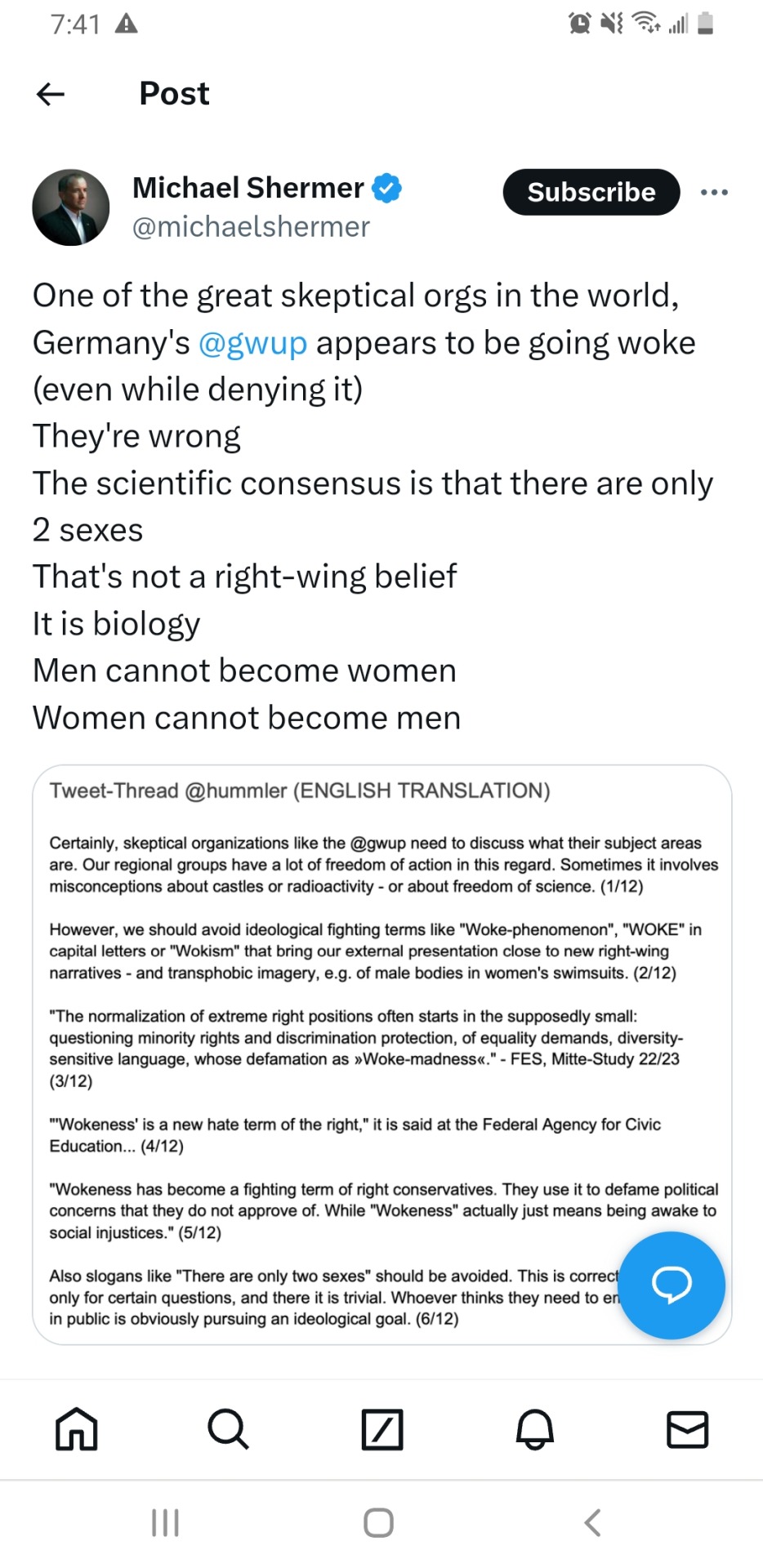
Good god, what a loathsome creature. It's so typical of Shermer to pontificate on science when he hasn't bothered to read a fucking book.
0 notes
Text
Michael Shermer
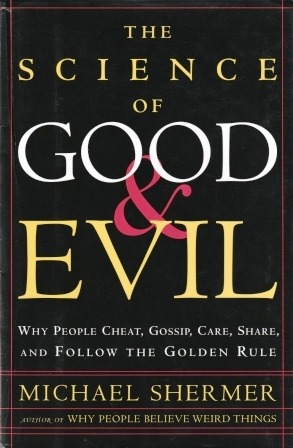

0 notes
Text
On Skepticism: Michael Shermer & Jeremy Rys on DarkHorse
I’m hooked on On Skepticism: Michael Shermer & Jeremy Rys on DarkHorse on Castbox. Check out this episode! https://castbox.fm/vb/629229477
View On WordPress
0 notes
Text
One thing that people keep forgetting is that the U in UFO stands for UNIDENTIFIED.
Whenever a large number of people hear or see "UFO" they assume that it means some extraterrestrial civilization is here to spy on us, take our genetic material, or even eat us. Most of the time sightings turn out to be something with a more down-to-Earth explanation.
Considering what we've done to this planet and the rapacious dictators we often put in power, any intelligent species would probably want to avoid our planet.
Recent hearings by a congressional committee on UFOs were about what you'd expect in Kevin McCarthy's House.
When renowned skeptic Michael Shermer watched the recent U.S. Congressional House committee hearing — which included shocking testimony about UFOs, alien spacecraft and alien remains — he was, perhaps not surprisingly, unimpressed.
Indeed, what was more amazing to Shermer, publisher of Skeptic magazine, was the fact that such a hearing was even taking place.
"It's astonishing it's come this far without any real evidence, without anybody in the scientific community making an appearance," said Shermer, publisher of Skeptic magazine. "We are still seeing not a shred of physical evidence."
But the fact that the House Oversight Committee would take the time to listen to allegations of dead aliens, crashed alien spacecraft and a secret government program to retrieve such technology, signifies to some just how seriously some U.S. politicians are treating the subject of UFOs, or UAPs — unidentified anomalous phenomena.
The testimony the committee heard was devoid of serious proof to back up what was stated.
While he had made the claims in public before, it was the testimony of a former air force intelligence officer, retired Maj. David Grusch, that captured the most attention.
Grusch told the committee he had been asked in 2019 by the head of a government task force on UAPs to identify all highly classified programs relating to the task force's mission.
At the time, Grusch was detailed to the National Reconnaissance Office, the agency that operates U.S. spy satellites.
He said he'd been informed of "a multi-decade UAP crash retrieval and reverse-engineering program."
Grusch also alleged that government officials had retrieved non-human "biologics" from the crafts.
The expression "non-human biologics" could accurately be used to describe mouse poop. 😆
Americans have big mouths. Accusations of a multi-generational cover-up of extraterrestrials crashing on Earth sound too stupid for words. The recent case of Jack Teixeira trying to impress his internet buddies by leaking classified documents puts this into perspective.
In 2020, Congress instructed the director of national intelligence to provide "a detailed analysis of unidentified aerial phenomena data" from multiple agencies.
That report, made public the following year, did not find extraterrestrial links in its reviews of mysterious aircraft sightings. But many of those sightings could not be explained.
Of course they could not be explained. We are not omniscient. Tornadoes couldn't be explained 150 years ago. And we are still discovering new subatomic phenomena. But just because something in the sky can't be explained doesn't mean it's automatically little green men from Planet Zontar.
I concede that various national security agencies may not wish to reveal that they know more about foreign intelligence gathering efforts than is publicly known. That's one way to feed them false information. That may have been a reason the Chinese balloon was not immediately shot down.
As an amateur astronomer, I am aware of how boring our local star (AKA: the sun) must appear to anybody viewing this sector of the galaxy. It's middle aged and stable. It is not the sort of object that would attract much attention.
And we have only been sending radio waves into space since the late 19th century. Those waves would not have been significant until the 1920s. So there's a radius of maybe just 100 light years where anybody with the capability of detecting them would have noticed.
Humans have always had difficulty understanding that they are not the center of the universe.
I do believe that there are probably extraterrestrial civilizations in our galaxy – but they are few. And they almost certainly wouldn't look like us or use the type of technology we're used to. Of the many millions of species on Earth, only the other great apes (gorillas, chimps, and orangutans) look even remotely like us; don't expect a creature which evolved on a distant planet with much different biology to look even like a Klingon or Ferengi.
Those short bipedal "aliens" with big eyes in pop culture are strictly products of Earthly imaginations. Genuine intelligent extraterrestrials are probably far more extraordinary; author David Brin's Kanten (essentially sentient trees) would be one hypothetical example.
Back to Congress, the Washington Post's Dana Milbank wrote a hilarious column about the House alien hearing...
Aliens are among us – and they want to impeach Biden (archived)
I could go on and on, but I'll let the late astronomer Carl Sagan have the last word on this...
"[E]xtraordinary claims require extraordinary evidence."
#extraterrestrials#ufo#aliens#extraterrestrial spacecraft#unidentified anomalous phenomena#house oversight committee#hearings#us house of representatives#david grusch#michael shermer#carl sagan
1 note
·
View note
Text
a rumination on the meanings of the stars (if any)
I have this curious notion, entirely unprovable of course, that being from the far North of the Earth does something to your worldview, because of how the sky looks at night.
consider that near the Equator, you can see almost every constellation, almost every star. the entire celestial vault revolves into view, from North to South celestial poles.
but near the North Pole, you see the Pole Star high up, and the entire sky wheels around it—and you don't see most of the stars in the Southern celestial hemisphere. I feel like...growing up with that, and knowing only half the stars in the sky...I think that does something to the human mind. something subtle but lasting.
it's not fashionable to think of the stars as having any effect on the human mind or human behavior. the "skeptical" and "rational" crowd, the Neil Tyson crowd, scoff at the idea that the Moon or the stars or any other celestial bodies can exert any influence on humanity—even though people see all these celestial bodies, use them to navigate, use them for timekeeping...
...so why the fixed denial? why assert that the Moon can't possibly do anything to people, even though it's bright and obvious in the sky--even though the Moon causes most of our tides, and causes the entire Earth to change shape periodically, altering its surface gravity?
astronomy and astrology consider themselves to be bitter enemies, and I don't like that. astrology was based on empiricism—that is to say, the astrologers began with something that they could measure and keep track of, namely the clockwork motions of celestial objects. if the old astrologers thought that they discerned a pattern in human events that corresponded with the motions of the heavens, then they must have discerned that through experience.
"pareidolia", the skeptic might sneer—as if that explained anything at all. "pareidolia" is a neutral word, or it ought to be neutral anyway; the human mind naturally seeks patterns and correspondences in things. it requires effort, investigation and inquiry and above all time and patience, to determine whether such patterns are meaningful.
turning "pareidolia" into a mere skeptical sneer is to say that pattern-matching is BAD, and that humans are fools for detecting patterns or coincidences in things...and that's to the liking of authoritarians, as it happens. they don't want people noticing patterns.
Neil Tyson is an authoritarian; he wants you to think that he and his friends (like fellow sexual assailant Michael Shermer) have everything worked out. they have all the knowledge, all the answers; we the people are meant to be mere passive consumers of their wisdom.. (we're also meant to believe that all reports about their sexual misdeeds are mere lies, and that we're fools to discern any pattern of behavior from Shermer and Tyson—more "pareidolia" at work, they might say.)
Tyson, ultimately, doesn't want us looking at the sky. he doesn't want us to see these things for ourselves, to have our own feelings about the Moon and the planets and the stars; he doesn't want us to derive our own sense of meaning from these things. he and his "skeptical" friends wish to be the sole authorities on the sky.
above all we're not supposed to think that there's anything mysterious or poetical or (heaven help us) anything mystical about the celestial sphere. the "skeptical" way is to reduce everything to mere matter, mere things, mere data: the Moon is only a ball of stuff.
everything's already settled and explained away, in the Tyson / Shermer "rationalist" mindset—the STEM-lord mindset. we're not supposed to have feelings about the Moon or the stars, any more than we're supposed to have feelings about arithmetic, or about electrons.
but what if they're wrong?
what if the celestial vault really is mystical? maybe arithmetic is full of cosmic mystery? maybe electrons bear not merely electric charges, but also divine enigmas?
what if the stars aren't just matter? what if they...matter?
~Chara of Pnictogen
0 notes
Text

🌼🦗 There's no insect in the picture this time. Although our pattern-seeking brains instinctually make it easy for us to recognize insect-like shapes. So if we have the chance, we should not blindly trust our gut instinct. By that I mean, if we are in no situation of immediate danger that requires a fast instinctual reaction, better double-check.
Evolutionary speaking, it is less dangerous to have false positives (detect danger where there is none) than to have false negatives (not detect danger when there is danger). As a result, the humans that survived best are adept to find patterns whether they exist or not. (see also Michael Shermer: “we have the tendency to infuse patterns with meaning, intention, and agency”) Michael Shermer points out that humans make mistakes and that finding patterns, meaning, intention or agency where there is nothing is the main reason for self-deception or religious beliefs. 🖖😊
#pattern#pattern recognition#evolution#instinct#photography#nature photography#depth of field#green#green plants#flowers#white flowers#human nature#psychology#michael shermer
1 note
·
View note
Text
Why the military UFO's are likely software glitches
Great discussion between Michael Shermer and Joe Rogan about the new UFO sighting by military planes. I'm on the sceptic corner, i.e. there's plenty of ordinary explanations that sufficiently explain what we see to not result in the extraordinary. And even the drone part, even though plausible, I'm doubtful as that would be a credible, direct military threat and has likely been investigated (if you have almost daily sightings, I'm sure several special ops units have been scouring the area for visual confirmation).
One argument I want to add here is that likely software glitches are part of the problem, probably not the root cause but making it bigger. For one everything on the screen is software enhanced and suspect to errors in that enhancement similar to previous generation optical glitches. Secondly, the purpose of the system is to identify and track military targets like other planes and buildings. Drones and birds and other small things is not a priority for the software developers. Filtering out those was probably never a requirement from the beginning and if it was on the table, that's the kind of stuff that tends to get cut or minimized when the project inevitably falls behind of it's schedule. Nobody will spend months in test flights capturing data about drones for developers to implement a working filter.
Also unlike Joe claimed, these are not the "best sensors known to man" but rather the cheapest one that fit the size and weight requirements and got the primary fob done. Unit cost is a primary concern so they'll use a 10% cheaper sensor if they think it will be enough let alone spend 10x on the next gen unit.
Most likely these will quietly get rarer and rarer as the software in the systems gets iterated and improved.
https://www.youtube.com/watch?v=Fih4cYdsoYs
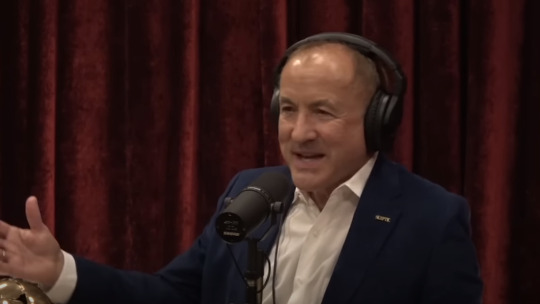
0 notes
Text
Noise by Daniel Kahneman | 3 Distinctions
Noise by Daniel Kahneman | 3 Distinctions
The Michael Shermer Show with Daniel Kahneman – Noise: A Flaw in Human Judgment
DESCRIPTION
Imagine that two doctors in the same city givedifferent diagnoses to identical patients. Nowimagine that the same doctor making a differentdecision depending on whether it is morning orafternoon, or Monday rather than Wednesday.This is an example of noise: variability injudgments that should be…

View On WordPress
0 notes
Text
youtube
Watch the American Climate Leadership Awards 2024 now: https://youtu.be/bWiW4Rp8vF0?feature=shared
The American Climate Leadership Awards 2024 broadcast recording is now available on ecoAmerica's YouTube channel for viewers to be inspired by active climate leaders. Watch to find out which finalist received the $50,000 grand prize! Hosted by Vanessa Hauc and featuring Bill McKibben and Katharine Hayhoe!
#ACLA24#ACLA24Leaders#youtube#youtube video#climate leaders#climate solutions#climate action#climate and environment#climate#climate change#climate and health#climate blog#climate justice#climate news#weather and climate#environmental news#environment#environmental awareness#environment and health#environmental#environmental issues#environmental justice#environment protection#environmental health#Youtube
6K notes
·
View notes
Text
By: Michael Shermer
Published: Nov 13, 2023
On November 11, 2023, my friend, colleague, and hero Ayaan Hirsi Ali released a statement explaining "Why I am Now a Christian".
I have known Ayaan for many years. She has been a guest on my podcast, and I on her podcast. We have appeared together at conferences. I have read all of her books and support her heroic work defending women’s rights, civil rights, free speech, and freedom of religious expression, along with her brave stand against intolerance, bigotry, and hate, religious or otherwise. I’ll never forget when she spoke at Occidental College when I was a professor there, when during the Q&A two Muslim women dressed in the hijab accused her of Islamophobia for unfairly characterizing Islam as a religion of violence. “Then why do I have to have to travel with armed guards to protect me from death threats I receive from members of my own religion of Islam?” she rejoined understatedly and with characteristic aplomb. Ayaan has pride of place in the pantheon of greats who have had the courage of their convictions to the point of putting their own lives on the line in the name of universal principles of justice and freedom.
Nothing Ayaan has written in her essay changes my evaluation of her as a heroic figure. I simply think she is mistaken. We all are about a great many things. Maybe I am wrong here and she is right. But I think reason and history prove otherwise. Let me explain in the spirit of respect for what is on the line here, starting with the subtitle of Ayaan’s essay: “Atheism can't equip us for civilisational war.” She’s right, but not in the way she thinks.
Atheism per se can’t equip anyone for anything because it is not a belief system or worldview. Atheism just designates a lack of belief in God. Full stop. It is a purely negative statement, an indicator that someone does not believe. A lack of belief can never be the basis of a belief system. I am an atheist in the same sense that I am an a-supernaturalist or an a-paranormalist. There is no such thing as the supernatural or the paranormal. These descriptors are just linguistic place-holders for mysteries we have yet to explain. Once explained, they move into the realm of the natural and the normal. If there is a realm of the supernatural or the paranormal, there is no way for a natural and normal being like us to perceive or understand it.
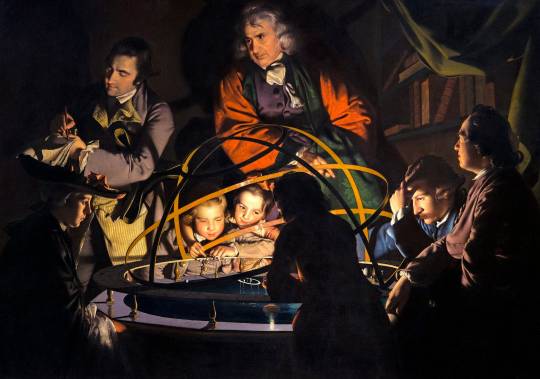
From this misunderstanding of what atheism is, Ayaan deduces that it can’t handle the stressors of current events:
Western civilisation is under threat from three different but related forces: the resurgence of great-power authoritarianism and expansionism in the forms of the Chinese Communist Party and Vladimir Putin’s Russia; the rise of global Islamism, which threatens to mobilise a vast population against the West; and the viral spread of woke ideology, which is eating into the moral fibre of the next generation.
Again, she’s right. Atheism can do nothing about these threats because it is not a positive assertion of principles that counter authoritarianism, expansionism, Islamism, China, Russia, and woke ideology. What can? Ayaan mentions “modern, secular tools: military, economic, diplomatic and technological efforts to defeat, bribe, persuade, appease or surveil.” She says these are not enough because “we find ourselves losing ground.” Are we? I don’t think so. But it’s a debatable point, so let’s set aside for a moment the matter of whether or not the world is getting better or worse this week, month, or year, and take the long view of what has driven moral progress over the centuries.
In my books The Moral Arc and Giving the Devil His Due I show that it isn’t atheism bending the arc of justice and freedom, but Enlightenment humanism—a cosmopolitan worldview that places supreme value on human and civil rights, individual autonomy and bodily integrity, free thought and free speech, the rule of law, and science and reason as the best tools for determining the truth about anything. It incorporates scientific naturalism, the principle that the methods of science operate under the presumption that the world and everything in it is the result of natural processes in a system of material causes and effects that does not allow, or need, the introduction of supernatural forces. By extension from above, if God is a supernatural being outside of space and time and therefore unknowable in any rational or empirical manner, it is not possible for natural creatures like us to understand a supernatural deity.
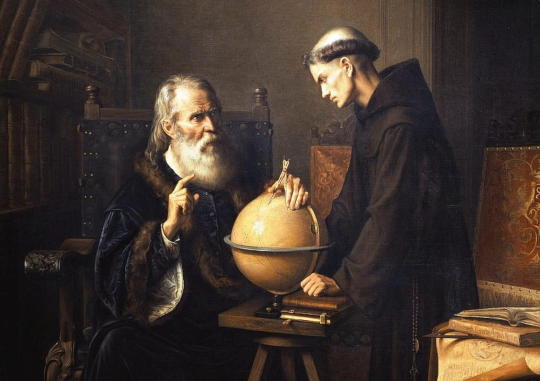
Scientific naturalism and Enlightenment humanism made the modern world, and many of the founding fathers of the United States, for example Thomas Jefferson, Thomas Paine, Benjamin Franklin, James Madison, and John Adams, were either practicing scientists or were trained in the sciences, and their construction of the Constitution and the principles on which it is based were thoroughly secular and based on the best science and philosophy of the day. It is my hypothesis that in the same way that Galileo and Newton discovered physical laws and principles about the natural world that really are out there, so too did the founders discover moral laws and principles about human nature and society that really do exist.

Just as it was inevitable that the astronomer Johannes Kepler would discover that planets have elliptical orbits—given that he was making accurate astronomical measurements, and given that planets really do travel in elliptical orbits, he could hardly have discovered anything else—scientists studying political, economic, social, and moral subjects will discover certain things that are true in these fields of inquiry. For example, that democracies are better than autocracies, that market economies are superior to command economies, that torture and the death penalty do not curb crime, that burning women as witches is a fallacious idea, that women are not too weak and emotional to run companies or countries, that blacks do not like being enslaved, and that the Jews do not want to be exterminated. Why?
The answer is that it is in human nature to struggle to survive and flourish in the teeth of nature’s entropy, and having the freedom, autonomy, and prosperity available in free societies—built as they were on the foundation of scientific naturalism and Enlightenment humanism that seek to discover the best way for humans to live— enables individual sentient beings to live out their evolved destinies. This is moral realism, and it doesn’t require a deity to justify its validity. Steven Pinker explains the logic:
If I appeal to you to do anything that affects me—to get off my foot, or tell me the time or not run me over with your car—then I can’t do it in a way that privileges my interests over yours (say, retaining my right to run you over with my car) if I want you to take me seriously. Unless I am Galactic Overlord, I have to state my case in a way that would force me to treat you in kind. I can’t act as if my interests are special just because I’m me and you’re not, any more than I can persuade you that the spot I am standing on is a special place in the universe just because I happen to be standing on it.
This is the principle of the interchangeability of perspectives (developed in Pinker’s 2018 book Enlightenment Now), which is the core of the oldest moral principle discovered multiple times around the world throughout history: the Golden Rule. Pinker notes that it also forms the basis of “Spinoza’s Viewpoint of Eternity, the Social Contract of Hobbes, Rousseau and Locke; Kant’s Categorical Imperative; and Rawls’s Veil of Ignorance. It also underlies Peter Singer’s theory of the Expanding Circle—the optimistic proposal that our moral sense, though shaped by evolution to overvalue self, kin and clan, can propel us on a path of moral progress, as our reasoning forces us to generalize it to larger and larger circles of sentient beings.”
Thus, there are perfectly rational reasons to ground morals and values in universal humanistic principles, and these do not depend on adherents being theists or atheists. That they are universal principles mean that they apply to all people—Jews, Christians, Muslims, Buddhists, Hindus, pantheists, deists, agnostics, and atheists. Whether or not there is a God—much less the Christian God—is irrelevant. That’s what universal means.
Are there good reasons to believe in God? Theists certainly think that there are, but atheists are just as certain that there are not. Who is right? I have written numerous articles, essays, reviews, and book chapters on this subject, and in my next book, Truth: What it is, How to Find it, Why it Matters (forthcoming from Johns Hopkins University Press in 2025) I review the top 20 philosophical and scientific arguments for God’s existence and the counterarguments against them, so I won’t adjudicate the matter here. I will simply note that both sides have strong arguments and that, ultimately, it is not a question that can be definitively answered in the affirmative through philosophy or science, so it comes down to faith—one either makes the leap for personal reasons, or not.
As for Christianity, since Ayaan has declared her fielty to that particular faith over all others, I will concede her point that on the three threats facing the West that concern her (and me)—(1) the authoritarianism/expansionism of Islamism, (2) China and Russia, and (3) woke ideology—Christian conservatives have a clearer vision than atheist (or even theist) Leftists about the threat that Islamism, China and Russia, and woke ideology pose to the West (including and especially the LGBTQ community that would not fare well under such regimes). But this is political pragmatism pure and simple—“Say what you want about Christian conservatives, at least they know what a woman is!” I’m sympathetic to the sentiment, but is it a basis for a worldview? I think not. We should believe things because they are true, not just because they are politically pragmatic.
Consider what’s on demand in Christianity—that Jesus was the Messiah, was crucified, and was resurrected from the dead. (As the apostle Paul said in 1 Cor. 15:13-19: “if there is no resurrection of the dead, then Christ is not risen. … And if Christ is not risen, your faith is futile; you are still in your sins!”) Is that true? My first question is this: Why don’t Jews accept the resurrection as real, either in Jesus’ time or in ours? Jews believe in the same God as Christians. They accept the same holy book as Christians do (the Hebrew Bible, or Old Testament). They even believe in the Messiah. They just don’t think the carpenter from Galilee was him. Jewish rabbis, scholars, philosophers, and historians all know the arguments for the resurrection as well as Christian apologists and theologians, and still they reject them. That’s telling.

What would it take for a rational person to accept the resurrection? Let’s put some numbers on it. Demographers estimate that throughout all of human history approximately 100 billion people have lived before the 8 billion people alive today. Not one has died and returned from the dead, unless you are a Christian, in which case you believe that one person did—Jesus of Nazareth. So the claim that one person out of those 100 billion people who died came back from the dead would be extraordinary indeed—100 billion to 1. Is the evidence extraordinary for the resurrection? No. It’s not even ordinary.
According to the University of Wisconsin-Madison philosopher Larry Shapiro in his 2016 book The Miracle Myth, “evidence for the resurrection is nowhere near as complete or convincing as the evidence on which historians rely to justify belief in other historical events such as the destruction of Pompeii.” Because miracles are far less probable than ordinary historical occurrences like volcanic eruptions, “the evidence necessary to justify beliefs about them must be many times better than that which would justify our beliefs in run-of-the-mill historical events.” But, says Shapiro, it isn’t. In fact, it’s not even as good as ordinary historical events.
What about the eyewitnesses? Maybe, Shapiro suggests, they “were superstitious or credulous” and saw what they wanted to see. “Maybe they reported only feeling Jesus ‘in spirit,’ and over the decades their testimony was altered to suggest that they saw Jesus in the flesh. Maybe accounts of the resurrection never appeared in the original gospels and were added in later centuries. Any of these explanations for the gospel descriptions of Jesus’s resurrection are far more likely than the possibility that Jesus actually returned to life after being dead for three days.”
The principle of proportionally—or extraordinary claims require extraordinary evidence—also means we should prefer the more probable explanation over the less, which these alternatives surely are. Therefore, I am not a Christian because there is not enough evidence to believe that the core doctrines about Jesus’s resurrection are true. And I don’t want to believe in things that have to be believed in to be true.
What about the moral and political principles of Christianity upon which the West is claimed to be based? In The Moral Arc I make the case that Christianity went through the Enlightenment and came out the other end with the values so revered today by Westerners. This was not due to some new revelation from God (“thou shalt grant women equal rights as men”, “thou shall not enslave thy fellow humans”) or interpretation of scripture (“Galatians 3:28, ‘There is neither Jew nor Greek, there is neither bond nor free, there is neither male nor female: for ye are all one in Christ Jesus,’ is actually channeling the 1964 Civil Rights act that prohibits discrimination on the basis of race, color, religion, sex or national origin.“) Rather, once moral progress in a particular area is underway due to secular forces, most religions eventually get on board—as in the abolition of slavery in the 19th century, civil rights and women’s rights in the 20th century, and gay rights in the 21st century—but this often happens after a shamefully protracted lag time.
The world’s religions are tribal and xenophobic by nature, serving to regulate moral rules within the community but not seeking to embrace humanity outside their circle—unless they have inculcated the secular values of the Enlightenment, which most Christians have. Religion, by definition, forms an identity of those like us, in sharp distinction from those not like us, those heathens, those unbelievers. Most religions were pulled into the modern Enlightenment with their fingernails dug into the past. Change in religious beliefs and practices, when it happens at all, is slow and cumbersome, and it is almost always in response to the church or its leaders facing outside political or cultural forces.
Even if our morality does not originate in the Bible, religious believers will often argue that Christianity gave Western civilization its most precious assets: art, architecture, literature, music, science, technology, capitalism, democracy, equal rights, and the rule of law. First, no one disputes the magnificence of countless works of art, architecture, literature, and music that were inspired by Christianity: the great cathedrals that make the spirit soar, the requiems that capture the heartache of loss, the psalms of joy that unite listeners, the paintings that dazzle with light and human emotion.

But artists who live in a Christian world, who are surrounded by other Christians, who understand next to nothing beyond Christianity, and who are likely being supported by Christian patrons, are going to produce Christian work. Christianity was the dominant religion at a moment in history when Europe was going through a Renaissance and an explosion of discoveries of new lands and new political and economic systems; no wonder it ended up being the great patron. The fact that artists living in Christendom were inspired by the life and death of Jesus by crucifixion, and not, say, by the life and death of the Buddha by mushrooms, is not a surprise. Christianity was the only game in town.
As for Christianity forming the basis of democracy and capitalism, we can run the historical counterfactual and make a prediction: if this hypothesis is true, then societies in which Christianity is or was the dominant religion should show Western-like forms of democracy and capitalism. They don’t. The Byzantine Empire, for example, was predominantly Eastern Orthodox Christian from the early A.D. 300s, and for seven centuries produced nothing remotely like democracy and capitalism as practiced in modern America. Even early America wasn’t like it is today when, a mere two centuries ago, women couldn’t vote, slavery was legal and widely practiced, and capitalism’s wealth was vouchsafed to only a tiny minority of land holders or factory owners. Throughout the late Middle Ages and well into the Early Modern Period, all the nation states, city states, and various political conglomerates of Western and Central Europe were not only Christian but Western Christian, and yet as late as the 19th century the only quasi-democratic republics in Europe were England, Holland, and Switzerland. In Christian Europe, both England and Spain profited handsomely from their overseas colonial empires, made more profitable yet by the decimation of the native populations and the looting of their troves of precious metals, gems, and other natural resources—actions that by today’s moral standards are condemned.

Finally, social scientist Gregory S. Paul conducted correlational study of the societal health of 17 first-world prosperous democracies—Australia, Austria, Canada, Denmark, England, France, Germany, Holland, Ireland, Italy, Japan, New Zealand, Norway, Spain, Sweden, Switzerland, United States—and religiosity (to what extent the citizens in each believe in God, are biblical literalists, attend religious services at least several times a month, pray at least several times a week, believe in an afterlife, and believe in heaven and hell, ranking them on a 1-10 scale). The results were striking…and disturbing. Far and away—without having a close second—the United States is not only the most religious of the 17 nations but also the most dysfunctional, scoring the worst on a wide range of 25 different indicators of social health and well being (on a 1-9 scale from dysfunction to healthy), including homicides, suicides, life expectancy, STDs, abortions, teen births, fertility, marriage, divorce, alcohol consumption, life satisfaction, corruption indices, adjusted per capita income, income inequality, poverty, employment levels, incarceration, and others.
Correlation is not causation, of course, and each of these measures has multiple causes having nothing to do with religion (or the lack thereof), but if religion is such a powerful force for societal health as Christian commentators claim, then why is America—the most religious nation in the Western world—also the unhealthiest on all of these social measures? If religion makes people more moral, then why is America seemingly so immoral in its lack of concern for its poorest, most troubled citizens, notably its children? While it would be too much to say “religion poisons everything,” as Christopher Hitchens famously concluded in his book God is Not Great, it is problematic enough to conclude that it is not needed to create a healthy society.
Atheism isn’t the alternative to the Judeo-Christian worldview, Enlightenment Humanism is. We can ground human morals and social values not just in philosophical principles such as Aristotle’s virtue ethics, Kant’s categorical imperative, Mill’s utilitarianism, or Rawls’ fairness ethics, but in science as well. From the Scientific Revolution through the Enlightenment, reason and science slowly but systematically replaced superstition, dogmatism, and religious authority. As the German philosopher Immanuel Kant proclaimed: Sapere Aude!—dare to know! “Have the courage to use your own understanding.” As he explained: “Enlightenment is man’s emergence from his self-imposed immaturity.” The Age of Reason, then, was the age when humanity was born again, not from original sin, but from original ignorance and dependence on authority and superstition. Never again need we be the intellectual slaves of those who would bind our minds with the chains of dogma and authority. In its stead we use reason and science as the arbiters of truth and knowledge. As I said in my 2012 Reason Rally speech before a crowd of over 20,000 humanists and science enthusiasts on the mall in Washington DC:
Instead of divining truth through the authority of an ancient holy book or philosophical treatise, people began to explore the book of nature for themselves.
Instead of looking at illustrations in illuminated botanical books scholars went out into nature to see what was actually growing out of the ground.
Instead of relying on the woodcuts of dissected cadavers in old medical texts, physicians opened bodies themselves to see with their own eyes what was there.
Instead of human sacrifices to assuage the angry weather gods, naturalists made measurements of temperature, barometric pressure, and winds to create the meteorological sciences.
Instead of enslaving people because they were a lesser species, we expanded our knowledge to include all humans as members of the species through evolutionary sciences.
Instead of treating women as inferiors because a holy book says it is a man’s right to do so, we discovered natural rights that dictate that all people should be treated equally through the moral sciences.
Instead of the supernatural belief in the divine right of kings, people employed a natural belief in the legal right of democracy, and this gave us political progress.
Instead of a tiny handful of elites holding most of the political power by keeping their citizens illiterate and unenlightened, through science, literacy, and education people could see for themselves the power and corruption that held them down and began to throw off their chains of bondage and demand their natural rights.
The constitutions of nations ought to be grounded in the constitution of humanity, which science and reason are best equipped to understand. That is the heart and core of scientific naturalism and Enlightenment humanism.
==
"Beliefs are not like clothing. Comfort and utility and attractiveness cannot be our conscious criteria for adopting them."
-- Sam Harris
#Michael Shermer#Ayaan Hirsi Ali#belief#atheism#scientific naturalism#enlightenment humanism#enlightenment#the enlightenment#religion#religion is a mental illness
20 notes
·
View notes
Text
day 5
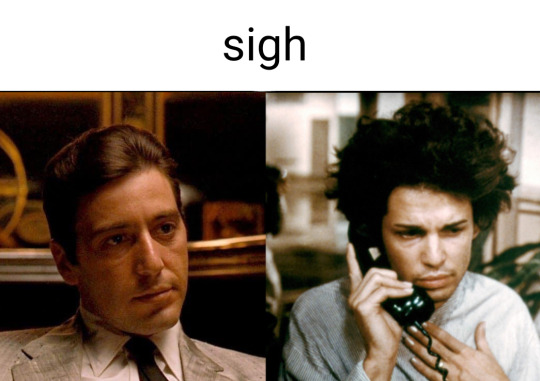
why is this image on my phone
crossover moment 🤯🤯
#dog day afternoon#the godfather#leon shermer#chris sarandon#michael corleone#al pacino#classic films
10 notes
·
View notes
Text

terrible day
pairing: slashers x gn!reader (thomas hewitt, michael myers, quentin shermer)
content: slashers kissing you. mentions of death, murder, and violence (it’s for slashers so duh on that one), dirty words sprinkled here and there with smut relations but not actually written, (so officially consider this my 18+ warning: minors do not interact)
words: three drabbles // around 500-600 each (total words: 1743)
note: modified from the kissing writing prompt: ‘i’ve had a terrible day at work, just kiss me’ but the work day is murdering people. i was gonna make this for six people instead of three but that would’ve been too long. so look out for a part two! if you wanna see anyone specific, just let me know :)
find me on ao3 | masterlist
thomas hewitt
You were upstairs - where you always were. Thomas had placed you down on his bed, as gently as his large hands would allow, and commanded you with a single finger to stay still. You had listened, to the point of staying in the exact same position, in the exact same spot.
Staying still and staring… it was the easiest way you could get yourself to mentally check out. For a moment, the screams of victims were too far away to hear. The world you created in your mind had taken the front of your vision. A world with less blood, less death.
Your opportunities for running away were long gone. Though you hadn’t actively participated in anything, you were just as guilty as the rest of them. Plus, the way Thomas looked at you…it would break your heart to leave him behind.
So you stared and imagined until he came back for you. And when he did, all bruised and bloodied, you still felt your heart drop to your feet. Thomas took a step towards you, but from the slumped shoulders, you knew something wasn’t right.
You had stood from the bed, muttering his name softly. He looked up at you, the leather of his mask covering his expression - not that he gave much away to begin with. Before you could make another move, his hands had gripped your hips and pulled you close. You started to comfort him again, but he nudged the side of your face with his.
Not understanding, you fell silent. Your hands trailed to the back of his head, running your fingers through his knotted hair. He grumbled, squeezing your hips tighter.
“I’m here, Tommy. It’s okay - ” He cut you off with an awkward kiss. The mask didn’t give much room for him to work, but the closeness was enough for him. It wasn’t the first time he had kissed you. But this was not like any other - this wasn’t the hesitant fumbling he usually kissed you with. He was always so unsure of what to do next, how you were going to react… but this time he kissed you with such tiredness you almost wanted to cry.
You kissed him back, hands coming to rest on the side of his face. It would be easier without the mask, but he refused to let you take it off. You pulled back when the rough edges of the leather started to rub too harshly against your lips. Taking his hand in yours, you pulled him to the bed,
He sat down, giving you no choice but to sit on his lap. You cradled his face again, fingers running over his eyebrows as if that was the cure for the tension he held there. “Tommy…”
His thick fingers brushed over your lips, his index resting over both of them. You nodded, understanding. He needed silence. There wasn’t anything wrong with that. He pulled his finger away and kissed you again. He was starting to find his confidence with you. The thought made your stomach flutter.
Thomas rested his head against your chest, listening to your steady breathing as you ran your fingers down the back of his head and over his neck.
════════════════════════════════════
michael myers
You don’t know what happened. You never would. Michael wasn’t exactly the kind of person (was that what he was?) that would come home and tell you about the struggles of his day. You could only tell when he appeared in the shared room. You never heard him approaching, whether it was just his nature or if he didn’t want you to know he was there, didn’t matter. Soon, the Shape would appear and you would learn exactly the kind of day he had.
At first you didn’t think anything had happened. You had turned, and there he was standing in the corner. Your heart gave a jump - it was something that you would never be used to. You had offered him a weak smile, waiting to see what he was going to do before you offered him any kind of words. You had learned that lesson early on.
But Michael just stood there, watching you. You couldn’t see his black eyes from where you stood, but you could feel them raking over your body. Studying you, maybe? Waiting to see your response?
The handful of laundry you were working on fell from your grip as your nervousness started to grow. You cleared your throat, picking up the dropped t-shirt again. Your folding wasn’t exactly spot on, but you focused it more as a task of having something to do with your hands. You folded and he stared.
You didn’t hear him move, but when you picked up the last shirt of the pile, Michael’s hands were on you. You turned to face him, expecting… something. But instead of the roughness you were used to, Michael held his hand to your throat. There was no pressure, no pain. He just kept it there, fingertips holding onto your heartbeat.
If you were there, just three hours ago, you would’ve seen his last victim. One that wasn’t planned, but had just been in the wrong place at the wrong time. But they… they remarkably looked like you. Under the light of the street lamp, Michael had thought that you had left. That you had left him.
But as the victim cried out, as their eyes dulled under his hand, he felt a strange feeling at the base of his neck. The lightness of his shoulders twisted. Why? Why did he have the sudden urge to see you and see you now? You were nothing to him. Something to keep his cock warm and clothes washed.
But watching the death unfold in front of him. He saw your face. He saw the blood leaving your neck. The light leaving your eyes. He didn’t like it. At all.
So he held your throat. Counted the difference between your steading breathing but rapid heartbeat. And he lifted his mask. Just slightly, though you had seen his face before. This wasn’t the time for full vulnerability.
His lips appeared, and before you had a chance to question him, he leaned forward and pressed his lifeless lips to yours. A squeak came out of you and you froze. He didn’t move, so you look the lead. Dropping the remaining shirt, you placed your hands on his biceps, holding him tightly.
He pulled back, securing his mask back down over his face. You had leaned down to pick up the fallen shirt, and when you stood - he was gone.
════════════════════════════════════
quentin shermer
You wouldn’t exactly say that the Blissfield Butcher took you in out of the kindness of his heart. Someone whose art projects focused on using supplies taken from dead animals and humans wasn’t exactly warm and fuzzy.
In reality, you just wouldn’t go away. The fascination with his pieces, commenting on small artistic decisions that most wouldn’t even realize, had changed his initial idea of killing you and tossing you out of the window.
It wasn’t the right time, anyway. He had plans. Plans that didn’t necessarily include you, but you proved to stay out of the way.
He wasn’t stupid enough to not realize you were using him as protection. As a hideaway from the druggies that would chase you down if you looked at them the wrong way. They didn’t dare chase him. They didn’t even glance his way.
It was smart, on your end. Holding out with the silent killer. Not that you knew that, of course. The rumors of the Blissfield Butcher had entered one ear and right out the other. The thrillers of folklore had bored you. Not when there was nothing more than rumors to back it up.
So when the high school’s homecoming night came around, you didn’t lift your guard. You didn’t move from the dirty mattress on the floor as the sun hid away its protection. You didn’t bat an eyelash as your quiet roommate slipped away.
You did, however, take full notice when he stumbled back in the door. The side of his shirt was darkened and wet and you didn’t know what to do. He had fallen back onto the bed just as you had jumped up to help him. His eyes were closed, hand pressed to his side. You hovered, trying to remember any sliver of first aid. The only thing that repeated in your head was stop, drop, and roll. You doubted that would do much help here.
“Left of the head.”
What? Was that a riddle? Oh shit, wait, he was talking.
“W-what?”
He opened his eyes and you could see the clear annoyance in them. “Left. Of. The. Head.” He pointed with his right hand and to the side of a mannequin head, you saw a pile of towels and duct tape. Oh. Right.
You had brought over the supplies, commenting clearly on how putting dirty towels on an open wound might not be the brightest idea - but he wasn’t listening. He guided your hands where he needed them, taking over doing most of the work himself. Once he was as situated as he was going to be, he fell back onto the mattress, arm swung over his eyes.
“Are you going to be okay?” Your voice was small. No matter what wacked out relationship the two of you had, you weren’t exactly thrilled with the idea that he might be seriously injured. He didn’t answer you, and your nerves wanted you to keep talking to give yourself something else to focus on. “Shit, you’re gonna die and I don’t even know your name. I mean I have the name I call you in my head but - ”
You didn’t even realize he had sat up. Your words were cut off by his lips on yours and you didn’t know what to do. He didn’t seem to take any offense to you not kissing him back. When he pulled away, his bored eyes were locked onto yours.
“I need you to shut up.” You would’ve called him rude, but you just nodded at his tone. His eyes flicked down to your lips again, and this time you were much more prepared. He pulled you back onto the bed, his arm holding you to his chest.
As you started to drift off to the smell of drying blood, you could’ve sworn you heard a deep voice whisper, “Quentin.”
#slasher x reader#slasher fandom#slasher fanfiction#thomas brown hewitt x reader#thomas hewitt x reader#michael myers x reader#quentin shermer x reader#blissfield butcher x reader#i can't have this handle and not throw one butcher fic in here
160 notes
·
View notes
Text
I have just come to the realization that for the last 10 years I have unwittingly been playing, and winning, a game whose winning condition is that I not think about Michael Shermer.
I have just lost the game.
So have you.
You're welcome.
PS Although I utterly loathe Michael Shermer, I have completely forgotten why. Can someone please remind me?
0 notes